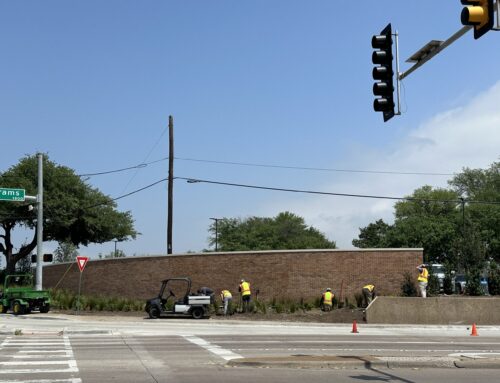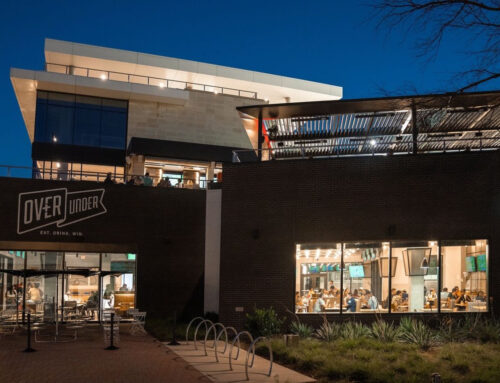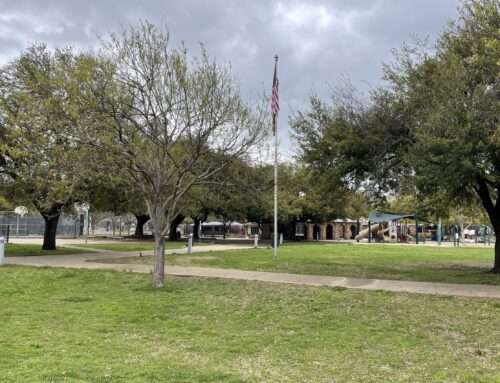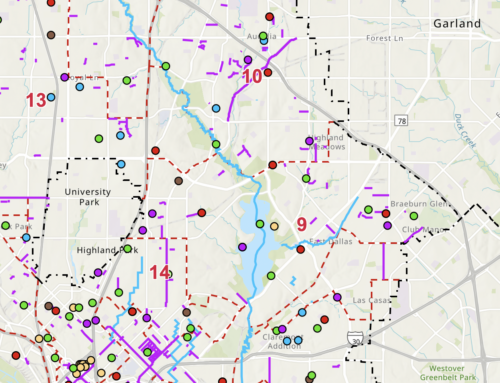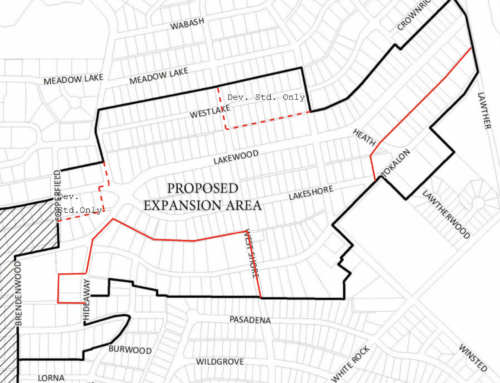For years, we’ve wanted to be a hip and trendy neighborhood. For years, we’ve insisted that Lakewood and East Dallas could hold its own with any other part of town, whether it was for quality of life, demographics or any of the other things used to measure this stuff.
Well, as the well-known philosopher Mick Jagger once noted: “You can’t always get what you want. … but sometimes you get what you need.”
Talk to commercial real estate people these days, and they’re saying that so much may happen here over the next 12 months, from Lakewood proper up Greenville Avenue to Mockingbird, that places we’ve seen for years might vanish for new development. It’s difficult to get a handle on how accurate their guesses are, since gossip is part of their stock in trade, but if even half of this new construction happens, it will transform the neighborhood.
Are these changes good? Are they bad? Will we like them? Do we even want them? Perhaps, once, those questions needed to be answered before anything else happened. But these days, they’re almost irrelevant. When your neighborhood is as chic as this one is becoming, this stuff happens whether you want it to or not, picking up a momentum of its own. People from out-of-town — deep pockets, big money people — see the numbers and hear the hype and figure it’s time to do a deal here.
Case in point: An apartment/townhome development that may be worth as much as $10-20 million is apparently going up on Oram and Alderson, catty-corner to the Wells Fargo bank building, replacing three 1960s-era apartment buildings.
No one has said for certain this will happen. The various people apparently involved in the deal, including a high-powered real estate financier named Todd Armstrong, did not return phone calls. What is known is that a real estate investment firm called the INCAP Fund (which state records say Armstrong runs) paid $2 million for the buildings and land. The woman whose family sold the property to INCAP said she expected the fund would bulldoze the land and build new, pricier properties. A buddy of mine, who used to do commercial real estate, ran the numbers for me and said the 1.5 acres could support 30-60 town homes worth about $200,000-$400,000 each.
All of this fits the land’s current zoning, so if it does happen, there is little anyone can do to stop it — assuming that stopping it is something we want to do. This is not an Emerald Isle-style development, where developers want to drastically change something that doesn’t need to be changed. Rather, as planners would say, it’s upgrading the use of the land. This concept, though not all that common here, happens all of the time in other hip urban neighborhoods in places like New York and Chicago, where there is little unused land. I used to live in a $165 a month walkup in Chicago’s Lake View area; the last time I was there, there had been so much renovation and new construction that I barely recognized the place. And, needless to say, the apartments didn’t cost $165 a month anymore.
Instead, the question to ask is whether the development is going to be quality, or whether the money guys are going to come in and throw up some junk, sell out, and count the profits on the way to their next deal. I don’t know that anyone would object if INCAP turned that corner into a mini-Bryan Place, similar to the development on Ross near downtown that has been well regarded since its inception 25 years ago. But if INCAP is going to pull a Lake Highlands and build barely code compliant housing (think of the apartments around the Sam’s Club on Greenville) that will wear out in a couple of years, it’s time to get the picket signs out.
Who knew it would be this difficult to be trendy?
Whither Whole Foods?
Sometime next year, the world’s biggest natural foods grocery chain is going to open a massive, state-of-the-art store at the new Park Lane Place development on the east side of Central Expressway, between Park Lane and Blackwell.
So what does that mean for the Lower Greenville Whole Foods?
A company spokesman said the chain has absolutely no plans to close the store, which was the fourth location in its empire. He also said that information on the company website, which calls the Park Lane Place store a relocation, “must be a mistake.” In addition, several employees told me they have been told that the store will remain open, although company officials expect sales to suffer.
On the other hand, an executive with one of Dallas’ most knowledgeable commercial real estate firms said he is telling everyone that Whole Foods is going to close the store.

